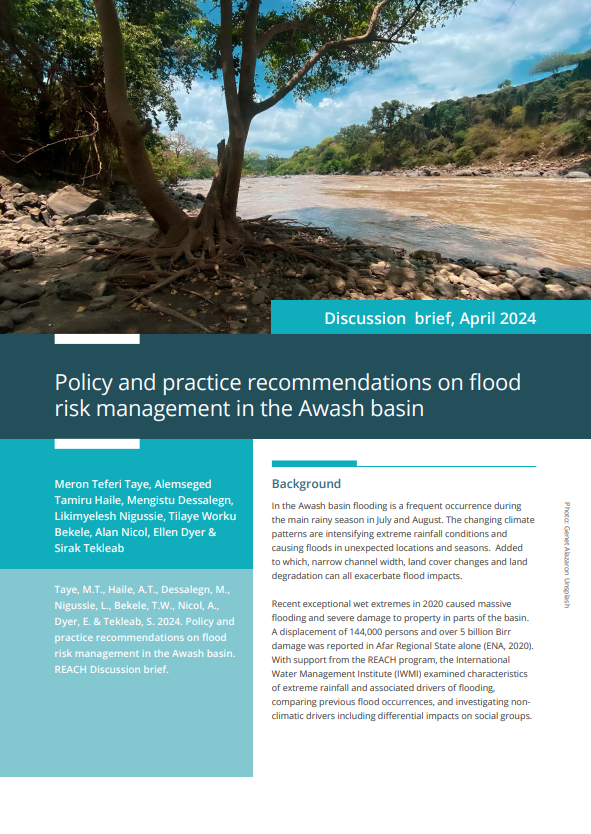Meron Teferi Taye, Alemseged Tamiru Haile, Mengistu Dessalegn, Likimyelesh Nigussie, Tilaye Worku Bekele, Alan Nicol, Ellen Dyer, Sirak Tekleab
In the Awash basin flooding is a frequent occurrence during the main rainy season in July and August. The changing climate patterns are intensifying extreme rainfall conditions and causing floods in unexpected locations and seasons. Added to which, narrow channel width, land cover changes and land degradation can all exacerbate flood impacts. Recent exceptional wet extremes in 2020 caused massive flooding and severe damage to property in parts of the basin. A displacement of 144,000 persons and over 5 billion Birr damage was reported in Afar Regional State alone. With support from the REACH program, the International Water Management Institute (IWMI) examined characteristics of extreme rainfall and associated drivers of flooding, comparing previous flood occurrences, and investigating non-climatic drivers including differential impacts on social groups. Key points emerging from this analysis are as follows:
- Unusual rainfall in terms of location, magnitude, and timing was the major cause of flooding in 2020
- The 2020 flood was characterized by early onset, delayed recession and larger extent of floods
- Although the initial trigger was extreme rainfall, many non-climate drivers contributed to and exacerbated flooding, as well as the range and intensity of impacts on communities
- The impacts of flooding vary across groups within communities
- Variation in type of flooding and differential impacts requires contextualized interventions
Recommended action points for practitioners and policy makers:
- Institutional design to facilitate coordinated management and response to floods
- Collaboration on operational guidance and improvement in flood early warning
- Revision of studies on the Awash based on recent science and data
- Implement web-based systems for data and information sharing including “data-free-of-charge” policy for researchers and research-users
- Integration of indigenous knowledge into flood risk preparedness and research
- Gender-responsive interventions are critical
- Inclusion and strengthening of Awash flood-related research themes in universities’ water-related programs

